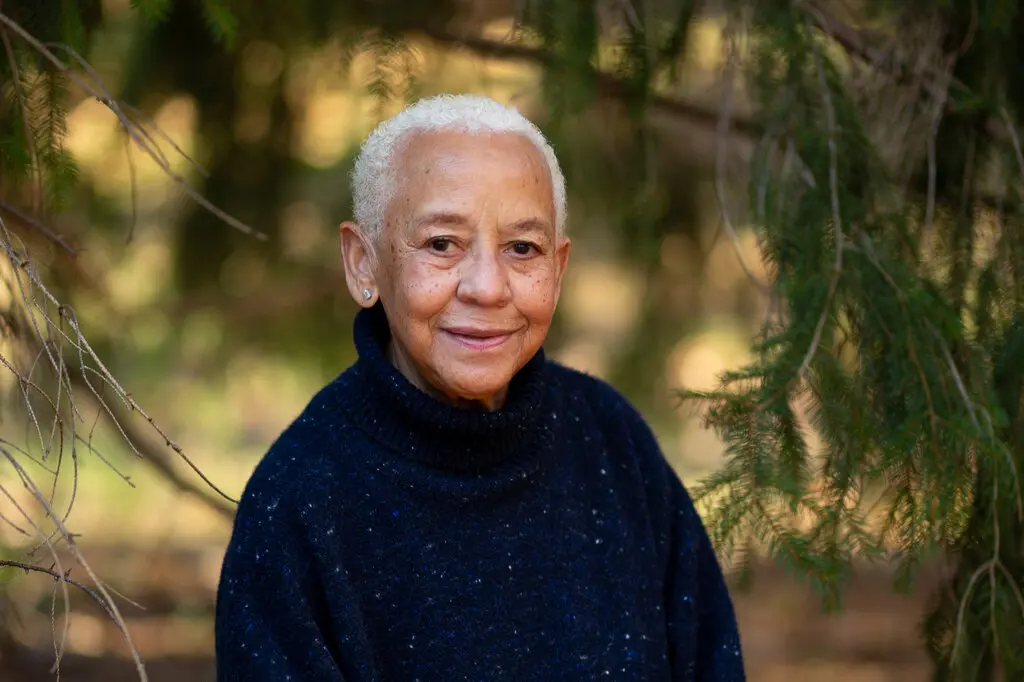As a writer, she tackled race, gender, sex, politics and love. She was also a public intellectual who appeared on television and toured the country.
Nikki Giovanni, the charismatic and iconoclastic poet, activist, children’s book author and professor who wrote, irresistibly and sensuously, about race, politics, gender, sex and love, died on Monday in Blacksburg, Va. She was 81.
Her death, in a hospital, was caused by complications of lung cancer, said Virginia C. Fowler, her wife.
Ms. Giovanni was a prolific star of the Black Arts Movement, the wave of Black nationalism that erupted during the civil rights era and included the novelist John Oliver Killens, the playwright and poet LeRoi Jones, later known as Amiri Baraka, and the poets Audre Lorde, Ntozake Shange and Sonia Sanchez, among others. Like many women in the movement, Ms. Giovanni was confounded by the machismo that dominated it.
Yet Ms. Giovanni was also a star independent of the movement, a celebrity poet and public intellectual who appeared on television and toured the country. She was a riveting performer, diminutive at just 105 pounds — as reporters never failed to point out — her cadence inflected by the jazz and blues music she loved, with the timing of a comedian or a Baptist preacher who drew crowds wherever she appeared throughout her life. She said her best audiences were college students and prison inmates.
In 1972, when she was 29, she sold out the 1,000-plus seats at Lincoln Center’s Alice Tully Hall, reading her poems alongside gospel music performed by the New York Community Choir. Soon after, for her 30th birthday, she sold out the Philharmonic theater, all 3,000 seats, where she was joined by Melba Moore and Wilson Pickett, who sang gospel numbers with the same choir that attended her earlier show. The audience joined in, too, with gusto, The New York Times reported, especially when she read one of her hits, the stirring paeon to Black female agency called “Ego-Tripping,” which generations of Black girls have performed at school. It begins:
I was born in the congo
I walked to the fertile crescent and built
the sphinx
I designed a pyramid so tough that a star
that only glows every one hundred years falls
into the center giving divine perfect light
I am bad
And it concludes, triumphantly:
I am so perfect so divine so ethereal so surreal/I cannot be comprehended/except by my permission/I mean … I … can fly/Like a bird in the sky …
By 1971, she had already published a memoir, “Gemini: An Extended Autobiographical Statement on My First Twenty-Five Years of Being a Black Poet.” Fiercely intelligent, Ms. Giovanni never lacked confidence, never suffered fools and was, in her youth, an Ayn Rand fan. In her book, she wrote about the contradictions and false pieties of the Black power movement, her scrappiness as a child and her ambivalence about gender relations. She was not convinced that men and women were meant to live together.
Three women stand together, smiling, in a black-and-white photo. One of them is holding an award.
Poet Nikki Giovanni, left, Kay Mazzo, ballet dancer with the New York City Ballet, and fashion designer Betsey Johnson receive the first Sun Shower Award in 1971.Credit…Associated Press
“Maybe they have a different thing going,” she wrote, “where they come together during mating season and produce beautiful, useless animals who then go on to love, you hope, each of you.”
Her poem, “Housecleaning,” made the point succinctly:
i always liked housecleaning
even as a child
i dug straightening
the cabinets
putting new paper on
the shelves
